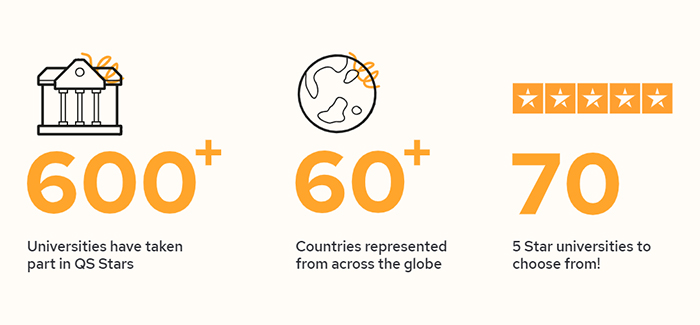Millennials starting university this year can expect a completely different experience from their parents, as higher education adapts to a new economic landscape and job market, the world of digital communication, and the ongoing march of globalization. Read on to discover seven of the biggest differences between the university experience of today’s students, and that of their parents.
1. Tuition fees have increased.
According to a 2012 report published by the Organization for Economic Co-operation and Development (OECD), there’s been a steady rise in tuition fees worldwide over the past two decades. Indeed, since 1995, some German states have begun to introduce tuition fees, while Australia, Austria, Denmark, Ireland, the UK and the US increased fees for international students and/or home students… So, wherever you are planning to study, expect to pay a lot more than your parents did!
2. So has financial aid.
Fortunately, financial aid has also risen to meet a growing demand. According to the same OECD report, in fact, countries like Australia, Canada, the Netherlands, New Zealand, the UK and the US have developed good ‘support systems’ to help students pay for their rising fees. So, tuition fees are a mixed bag, really.
3. Everything’s online.
This is the digital age, and that means the university journey – from researching and applying to institutions, to accessing course materials and submitting assignments – increasingly takes place online. Most universities now also offer online degrees, designed for working professionals with other commitments to manage, or students abroad.
4. Higher education is more diverse and inclusive.
Many universities have sought to foster LGBTQ-friendly campuses and classrooms, such as through the creation of LGBTQ support networks, designated LGBTQ student officers and LGBT-friendly campus policy. The LGBTQ-Friendly Campus Pride Index publishes objective assessments and ratings of US universities’ LGBT-friendly policies and resources, to empower and inform students while ensuring this remains a priority. In terms of recruitment, there’s also been an increase in the diversity of the student body; according to this OECD explainer, there are now more mature and international students than ever.
5. Universities are global brands.
The internationalization of higher education has fostered greater competition between universities to attract the best students from around the world, and expand their offerings abroad. A recent report by the British transnational education think tank HEGlobal, for instance, found that four in five UK universities plan to expand their higher education services abroad in the next three years. The report also only found as few as 15 countries in the world where the UK does not offer higher education services. Exchange programs are also a growing part of the higher education experience, with an
6. It’s harder to get a place.
More people go to university nowadays, but that doesn’t necessarily mean it’s any easier to gain entry – especially at the top level. Getting into an elite university, such an Ivy League college in the US, has become next to impossible with universities like Harvard, Stanford and Columbia reaching record-breaking admissions pools every year. On the other hand, there’s also been a rise in high-flying young universities worldwide, often with impressive budgets and facilities. For a rundown of the world’s best young universities, check out the QS Top 50 Under 50 2016-2017.
7. An army of weird subjects is on offer.
Yes, it’s become a bit of a cliché to rant about ‘Disney degrees’, but there certainly are some weird and wonderful specializations available. Did you know that Rutgers University runs a course on the politics of Beyoncé? If R&B’s not your cup of tea, you could also enroll in a degree on Zombie Studies or Robin Hood…
But happily some things will never change…
Just like their parents, today’s students can still look forward to:
- The inevitability of fresher’s flu,
- The all-nighter you pull when you’ve procrastinated your way into the seventh circle of hell,
- The toast diet you’re forced to adopt when your student loan runs out,
- The dread that precedes visiting home in the holidays after months of uninhibited freedom,
- The terrifying experience of living with a nightmarish roommate,
- Or the odd catastrophic student cooking experiment!
What else has changed about university? Comment to share your thoughts and anecdotes below!
Want more content like this? Register for free site membership to get regular updates and your own personal content feed.




